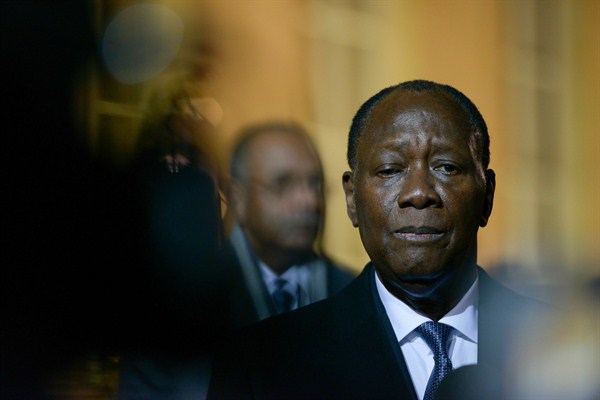As Cote d’Ivoire prepares for elections next year, the peace and progress of the past eight years could be at risk. Despite an attempt at security sector reforms, the same failures of governance that caused months of post-election violence in 2010, just three years after the end of the Ivorian civil war, could lead to another crisis in 2020.
Just three years after the end of its civil war in 2007, Cote d’Ivoire fell back into conflict when President Laurent Gbagbo rejected the internationally recognized electoral victory of his opponent, Alassane Ouattara, and refused to cede power. Within a span of five months, more than 3,000 people were killed and nearly 1 million more displaced as the pro-Gbagbo Armed Forces of the Republic of Cote d’Ivoire fought the pro-Ouattara New Forces for control of the country. Ouattara eventually won out in April 2011, and Gbagbo was arrested. Seven months later, Gbagbo was turned over to the International Criminal Court and flown to The Hague to face charges of war crimes.
Since then, Cote d’Ivoire has stabilized, maintaining peace and a remarkable economic recovery, with an average annual growth rate of nearly 9 percent. Yet as the country prepares for a new round of elections next year, set for October 2020, the peace and progress of the past eight years could be at risk. The same failures of governance and reform that caused the first Ivorian election crisis could lead to a second one.

